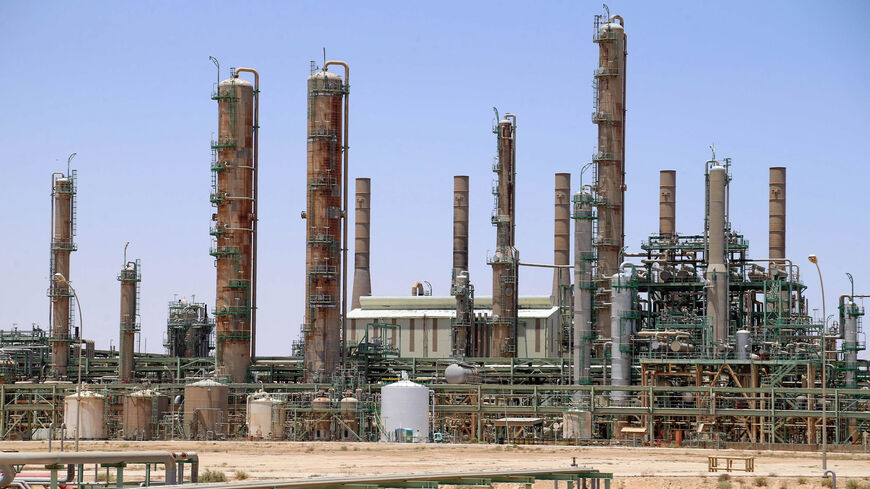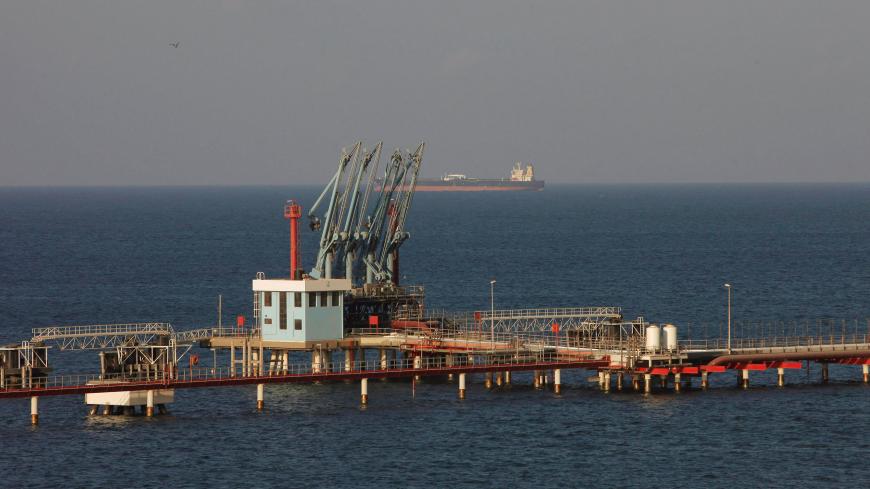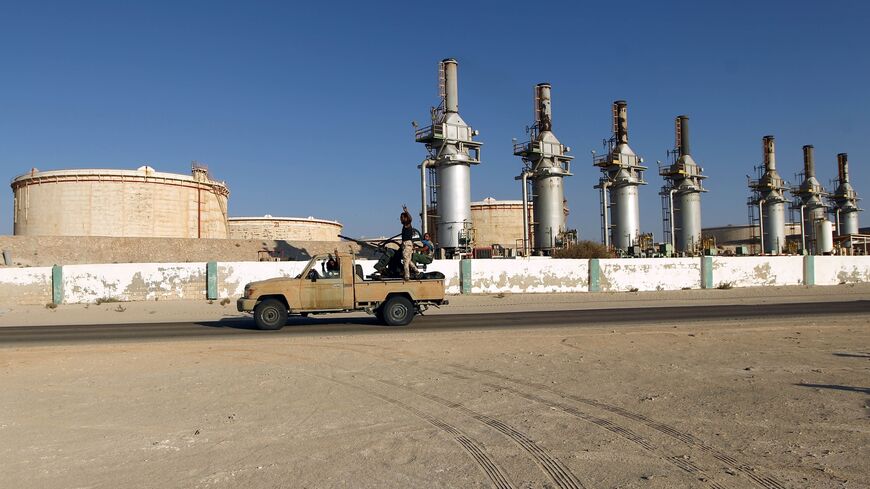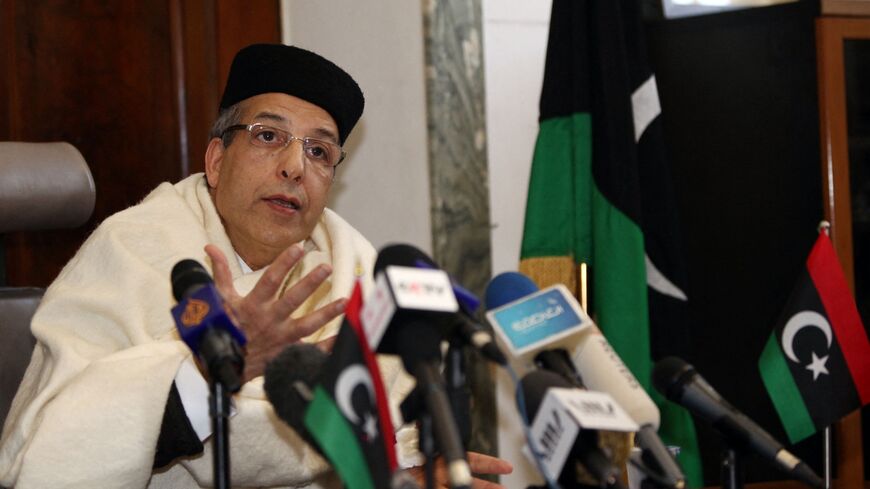Private firm breaks Libya oil monopoly, exports more than $600M
State oil company National Oil Corporation has had a monopoly on Libya's oil exports since 1970.
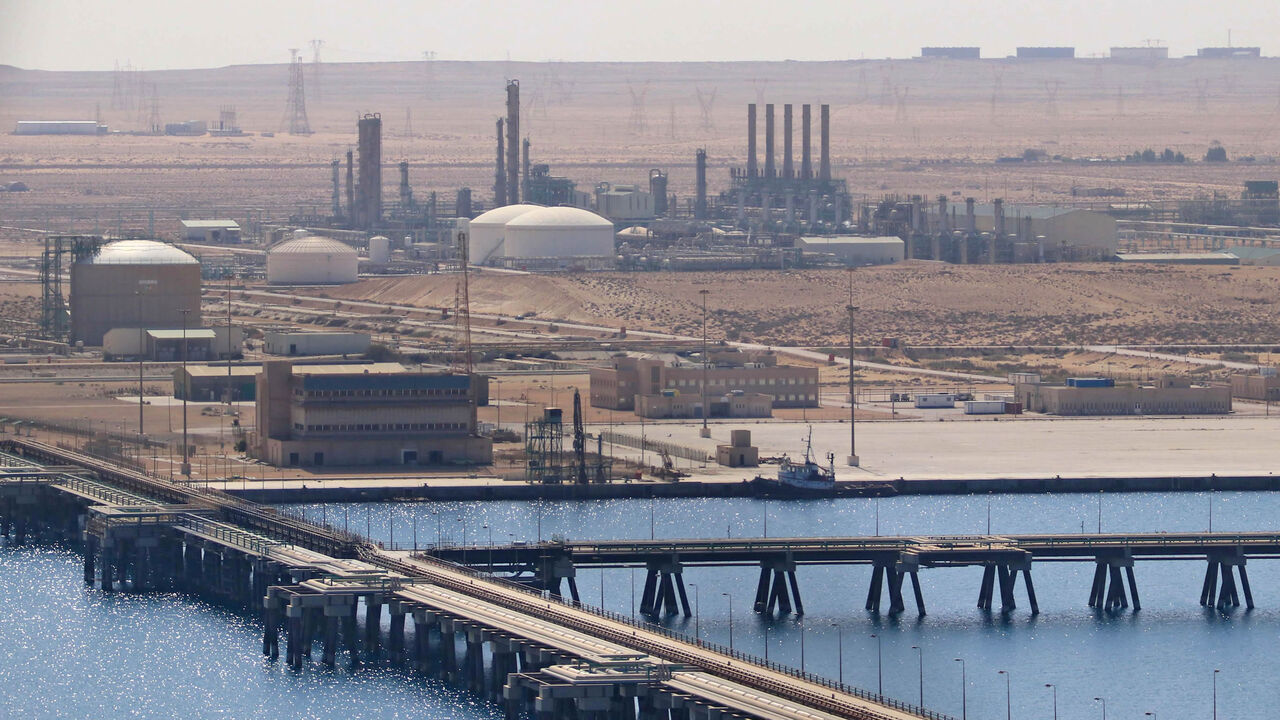
A little-known firm linked to forces that control eastern Libya has ended state-owned National Oil Corporation’s (NOC) monopoly on oil exports for the first time in over five decades, according to a new report.
Reuters reported Monday, citing shipping records and United Nations experts, that Arkenu Oil Company, established in 2023, exported at least $600 million worth of oil between May and December 2024.
Founded in 1970, NOC has historically controlled the country's vast oil reserves — some 48 million barrels of crude, according to the energy firm. In 2023, Libya exported 432 million barrels of oil, earning it $35.8 billion, according to the NOC.
Why it matters: Since Libya's former president, Moammar Gadhafi, was ousted in 2011, two rival factions in the east and west of the country have been in a power struggle to govern the North African nation and its lucrative oil industry. The UN-recognized government, the Government of National Unity, controls the capital, Tripoli, and western Libya, while the Tobruk-based Libyan National Army lays claim to much of the east, home to most of the country's oil fields, and is led by Field Marshal Khalifa Hifter. The GNU and the LNA fought a civil war between 2014 and 2020. The NATO-brokered cease-fire in place since 2020 has been fragile.
Reuters was unable to confirm who owns Arkenu, but it noted that a panel of UN experts said in a Dec. 13 report to the UN Security Council that the firm was indirectly controlled by Saddam Hifter, Khalifa's son, who was appointed chief of staff of the LNA’s ground forces in May.
The rise of Arkenu signals the growing influence of the LNA over the country’s oil sector.
According to Arkenu's website, the company is based in Benghazi, a port city in eastern Libya under Hifter’s control that ships oil. The website lists Mounir Mouftah Abu Bakr as the company’s chairman and Tariq Al-Bakoush as the general director.
Citing documents and data, Reuters reported that Arkenu exported seven oil cargoes between May and December 2024. US oil giant ExxonMobil bought one of the cargoes destined for Italy on Oct. 28, and Unipec, the trading arm of the world's largest refiner, Chinese state-owned Sinopec, bought at least two more destined for Italy and the United Kingdom, Reuters reported, citing sources.
Know more: In recent years, Libya’s oil industry has been plagued with shutdowns and force majeures due to the conflict between the GNA and LNA.
In August, Libya's oil fields in the east closed, including the El Sharara field, the country's largest, amid a crisis at the central bank. On Aug. 30, Sadiq al-Kabir, then-governor of the Central Bank of Libya, fled to Turkey after claiming he had received threats from armed militias reportedly linked to the GNA. He stated that the threats targeted him, his family and his colleagues, pressuring him to step down.
Mohamed al-Menfi, president of Libya's Presidential Council, which is mainly aligned with the Tripoli government, had dismissed Kabir a few days earlier, sparking the fury of the forces in eastern Libya and leading to the shutdown of oil production. The eastern forces supported Kabir, who had been running Libya's finances for 13 years. Until the threats were made, Kabir had refused to stand down as the bank's governor.
The crisis at the central bank threatened to upend the North African country’s economy, as all oil fields in Libya closed and investment had paused, but a new governor, Naji Issa, was appointed on Sept. 30, restoring stability to the country's oil market.

